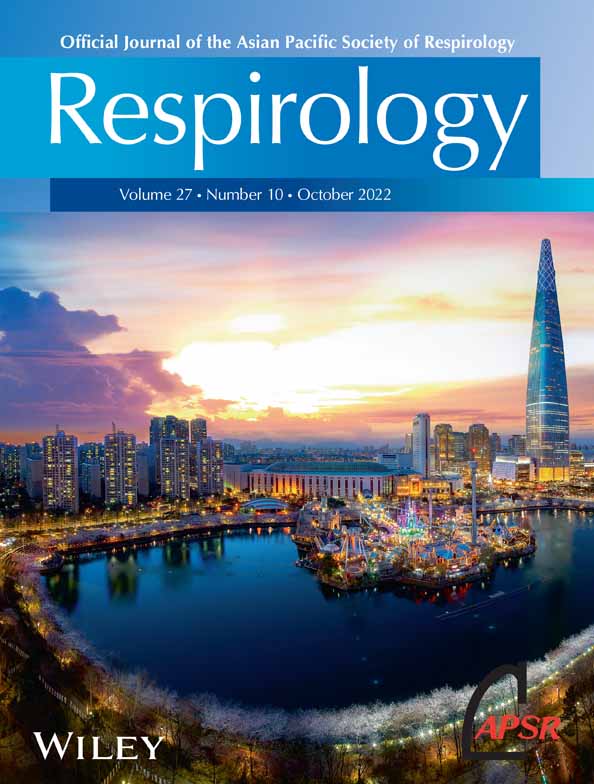Clinical relevance of rheumatoid factor and anti-citrullinated peptides in fibrotic interstitial lung disease
Funding information: Boehringer Ingelheim
See related: Editorial
Abstract
Background and objective
Rheumatoid arthritis (RA) is a frequent cause of interstitial lung disease (ILD); however, the impact of rheumatoid factor and anti-citrullinated peptide antibody seropositivity in ILD without connective tissue disease (CTD) is unclear. We examined the association of seropositivity with ILD progression, mortality and response to immunosuppression in non-CTD ILD.
Methods
A total of 1570 non-CTD patients (with idiopathic pulmonary fibrosis, hypersensitivity pneumonitis, interstitial pneumonia with autoimmune features or unclassifiable ILD) and 181 RA-ILD patients were included from a prospective registry. Longitudinal forced vital capacity (FVC), transplant-free survival and incidence of progressive fibrosing-ILD (PF-ILD) were compared between seronegative non-CTD ILD (reference group), seropositive non-CTD ILD and RA-ILD using linear mixed-effect and Cox proportional hazards models adjusted for age, sex, smoking pack-years and baseline FVC. Interaction between seropositivity and immunosuppression on FVC decline was assessed in patients with ≥6 months of follow-up before and after the treatment.
Results
Two hundred and seventeen (13.8%) patients with seropositive non-CTD ILD had similar rates of FVC decline and transplant-free survival compared to seronegative non-CTD ILD, but more frequently met the criteria for PF-ILD (hazard ratio [HR] = 1.35, p = 0.004). RA-ILD had slower FVC decline (p = 0.03), less PF-ILD (HR = 0.75, p = 0.03) and lower likelihood of lung transplant or death (HR = 0.66, p = 0.01) compared to seronegative non-CTD ILD. No interaction was found between seropositivity and treatment on FVC decline in non-CTD ILD.
Conclusion
Seropositivity in non-CTD ILD was not associated with improved outcomes or treatment response, highlighting the importance of other disease features in determining prognosis and predicting response to immunosuppression.
CONFLICTS OF INTEREST
Nathan Hambly reports personal fees and grants from Boehringer Ingelheim and Janssen. Kerri A. Johannson reports personal fees from Boehringer Ingelheim, Hoffman-La Roche Ltd and Astra Zeneca, and grants from the University of Calgary Foundation, Three Lakes Foundation and Pulmonary Fibrosis Society of Calgary. Deborah Assayag reports personal fees from Boehringer Ingelheim and Hoffman La Roche, and grants from Boehringer-Ingelheim. Jolene H. Fisher reports personal fees from Boehringer-Ingelheim and AstraZeneca, and grants from the Canadian Pulmonary Fibrosis Foundation and University of Toronto. Helene Manganas reports grants from Boehringer Ingelheim Canada, Hoffmann La Roche, Galapagos and BMS. Veronica Marcoux reports personal fees from Boehringer Ingelheim, Hoffman-La Roche and Astra Zeneca, and grants from the University of Saskatchewan, Royal University Hospital Foundation, Boehringer Ingelheim, Astra Zeneca and Hoffman-La Roche. Nasreen Khalil reports personal fees and grants from Boehringer Ingelheim. Martin Kolb reports personal fees from Roche, Novartis and Boehringer Ingelheim, and grants from Boehringer Ingelheim, Pieris and Hoffman-La Roche. Christopher J. Ryerson reports personal fees from Boehringer Ingelheim, Hoffmann-La Roche and Cipla Ltd, and grants from Boehringer Ingelheim and Hoffmann-La Roche. The remaining authors have no disclosures.
Open Research
DATA AVAILABILITY STATEMENT
Data sharing is not available.




